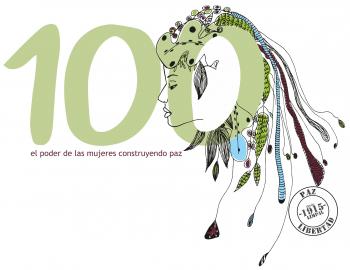Reconstruction and Peacebuilding
The Reconstruction and Peacebuilding theme focuses on the application of a gender perspective to peacebuilding. The response of local, national, and international systems to women’s priorities in post-conflict situations can significantly impact stability and development.
The realisation of women’s right to full participation in preventing, resolving and recovering from conflict, is critical to building sustainable peace and the fulfilment of human security. Furthermore, the response of local, national and international systems to women’s priorities in post-conflict situations, can significantly impacts the stability and development of communities.
The engagement of women in early stages of peacemaking can increase gender analysis in post-conflict planning, lead to improved outcomes for women, and enhance their capacity to participate in longer-term peacebuilding. However, women’s rights and concerns should not be dependent on the presence of women in peace processes. Systems must be in place to ensure their inclusion is standard operating procedure.
In SCR 1325, the Security Council recognises that addressing the unique needs of women and girls during post-conflict reconstruction requires integrating a gender perspective at all stages (1325,OP8). The Security Council acknowledges the need to counter negative societal attitudes regarding women’s equal capacity for involvement, and calls for the promotion of women’s leadership and support for women’s organizations (1889,OP1). In addition, the Security Council requests training on the protection, rights and needs of women in all peacebuilding measures (1325,OP6).
To achieve this, the Security Council tasks the Secretary-General to report on challenges and make recommendations relevant to the participation of women and gender mainstreaming in peacebuilding and recovery efforts (1888,OP19). In response, the Secretary-General issued a report on women’s participation in peacebuilding in 2010. The report details the challenges obstacles women must confront in participating in recovery and peacebuilding efforts, and advocates for a Seven-Point Action Plan to respond to these challenges.
First, the plan calls to increase women’s engagement in peace processes and to address gender issues in the context of peace agreements. Secondly, the plan urges for the inclusion of gender expertise at senior levels in the UN’s mediation support activities. Thirdly, the plan notes that, while the international community cannot control the gender composition of the negotiating parties, it must investigate strategies for the inclusion of more women. Fourthly, the plan calls for the establishment of mechanisms to ensure that negotiating parties engage with women’s civil society organisations. The Action Plan’s fifth commitment involves increasing the proportion of women decision makers in post-conflict governance institutions. The sixth point addresses rule of law, emphasising the importance of issues such as women’s access to justice and a gender perspective to legal reform. The Action Plan’s seventh commitment is concerned with women’s economic empowerment. The Action Plan’s implementation remains the challenge.
For more resources on this Critical Issue, visit PeaceWomen Resource Center >>

